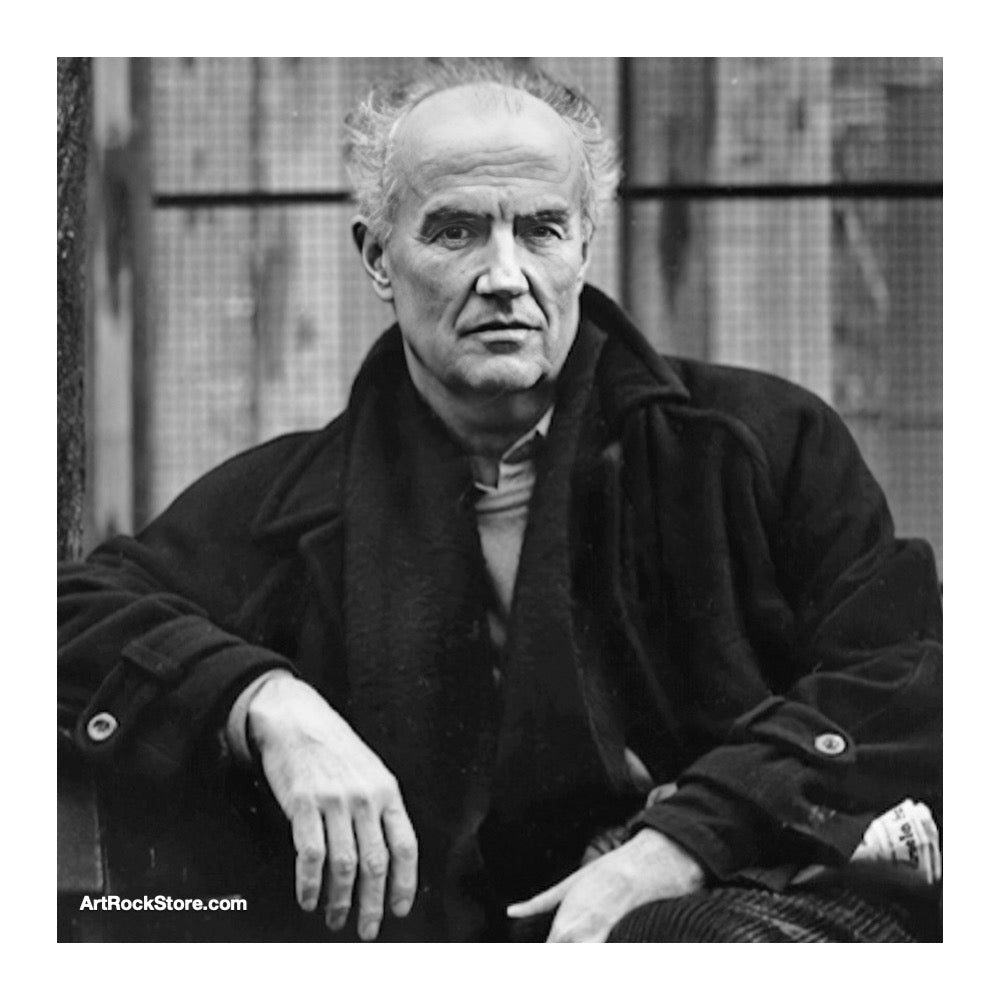
Luigi Nono | Artist
Luigi Nono was an Italian avant-garde composer of modern classical and electronic music born 1924 in Venice. He achieved prominence after World War II as an uncompromising modernist seeking to revolutionize music in Europe, along with fellow Italians Luciano Berio and Bruno Maderna. He also collaborated with other young modernists such as Pierre Boulez and Karlheinz Stockhausen, however Nono was arguably the most radical of them all, choosing to combine a keen political engagement with a musical orientation that mixes austere beauty with fierce intensity. Musically, Nono began to experiment with new sound possibilities, devising a new approach to composition and technique, frequently involving the contributions of specialist musicians and technicians to realise his aims. Such innovations became central to a new conception of time and space. His greatest achievement, the Opera Prometeo, has been described as "one of the best works of the 20th century". Nono was a member of a wealthy artistic family; his grandfather was a notable painter. As a youth Nono began music lessons at the Venice Conservatory in 1941, where he acquired knowledge of the Renaissance madrigal tradition, amongst other styles. He was later associated with the Darmstadt International Summer Courses for New Music (known as the "Darmstadt School"), which included Pierre Boulez, Bruno Maderna, and Karlheinz Stockhausen. In his lifetime, Nono composed 69 major musical works, including opera, large scale orchestral and choral works, chamber works, and solo instrumentals and voice pieces. He also composed a large body of Electronic music for tape manipulation, percussion and electronics. Some standout recordings of Nono's compositions include Complete Works For Solo Tape (2006), Prometeo. Tragedia dell'ascolto (2018), Composizione per orchestra n.1 (2004), hay que caminar (1992), amd A Carlo Scarpa; A Pierre; Guai Ai Gelidi Mostri (1990). Nono was a committed composer of anti-fascist political orientation, and an active member of the Italian Resistance during World War II. Many of his works were intended, like Picasso's painting Guernica, as an indictment of wartime atrocity. Nono married Nuria Schoenberg, the daughter of modernist composer Arnold Schoenberg, whom he met at the 1953 world première of Schoenberg's opera Moses und Aron, in Hamburg. In 1985, Nono came across this aphorism "Travellers, there are no trails – all there is, is travelling" on a wall of the Franciscan monastery near Toledo, Spain, and it played an important role in his later compositions. As Andrew Clements wrote about this aphorism in The Guardian, "It seemed to the composer the perfect expression of his own creative development, and in the last three years of his life he composed a trilogy of works whose titles all derive from that inscription."
Artist Website: wikipedia/Luigi_Nono
Featured Albums: Luigi Nono
More by Artist: Pierre Boulez, Karlheinz Stockhausen
